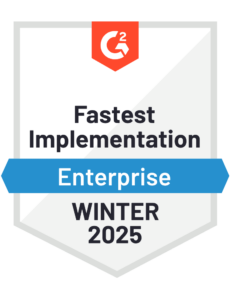Your Digital Transformation Strategy: 4 Tips to Invigorate Finance and Accounting Teams
Blog post
Share
Technology—and specifically automation—has taken a front seat for many organizations globally, in many cases revolutionizing day-to-day operations. A recent study found that technology budgets dedicated to innovation have increased by 8% within the last three years. While this focus on digital transformation strategy has helped speed up business and make many lives easier, antiquated financial processes have become glaring issues as teams struggle to keep pace, quickly finding that manual tasks are becoming overwhelming. It’s vital that finance and accounting professionals keep pace with the speed of their business – without compromising quality. We’ve discovered 4 key insights to help you lead your organization’s financial and accounting teams into the digital age.

#1: Think Big Picture
We’re willing to bet that digital transformation strategy is part of your organization’s overarching initiatives. Oftentimes, words like “innovation” and “transformation” bring to mind grand plans—but small changes have the potential to make a big impact. In fact, organizations surveyed revealed that the most common reason to embark on digital transformation and innovation was to deliver cost advantages or efficiencies. Don’t miss out on your piece of this bigger picture: utilizing automation can help your team stop spending time on mundane manual tasks and start focusing on what really makes a difference.
#2: Understand and Share Your Data
Finance and accounting professionals are naturally data driven—and they’re not the only ones. Data is valuable, but a single data point isn’t worth much. Gathering information from across the organization is integral for leaders to make decisions that control the future of the business. Leveraging comprehensive analytics to gather multiple data points not only provides a clearer picture of your organization’s financial health, but also presents valuable interdepartmental insights.
“You can’t continue to improve if you don’t have that initial visibility into how things are operating today.” – Gillian Gallimore, Group Financial Controller, Bitstamp
#3: Empower Your Team
Digital transformation is just that: a transformation. With any change comes challenges and a recent survey indicated that 84% of US enterprises were prevented from pursuing their digital transformation strategy within the last year due to a lack of resources and skills. Your team will need to adapt, whether that means being willing to learn new things or weathering a broader company cultural shift. Either way, it’s important to lead by example, keep a positive attitude, and provide the necessary resources to ensure success.
#4: Embrace Failure
It’s been said that Thomas Edison didn’t fail 10,000 times to make the lightbulb – he just found 10,000 ways that wouldn’t work. As your team steps forward onto the path of executing its digital transformation strategy, it’s inevitable that there will be challenges along the way. It’s imperative that your team take an exploratory approach, staying curious and open-minded as you move forward. Finding a partner that you can trust, coupled with the right technology, can make all the difference.
“There are many different factors to consider in the implementation process and getting just one wrong could be the reason a project fails … We made sure we were aligned across the business before we embarked on this transformation which was critical to the success.” – Paul Adams, Head of New Business and R2R, Serco
As your organization moves forward with its journey of digital transformation and innovation, Trintech can help by automating reconciliation and financial close processes. Our industry-leading solutions can help you drive growth, control risk, and empower your people while providing accuracy, control, and visibility. Trintech solutions work to solve any problem, no matter how complex. Learn more by reading our latest eBook, A Modern Guide to Financial Close Management.
Written by: Nicole Tallman






